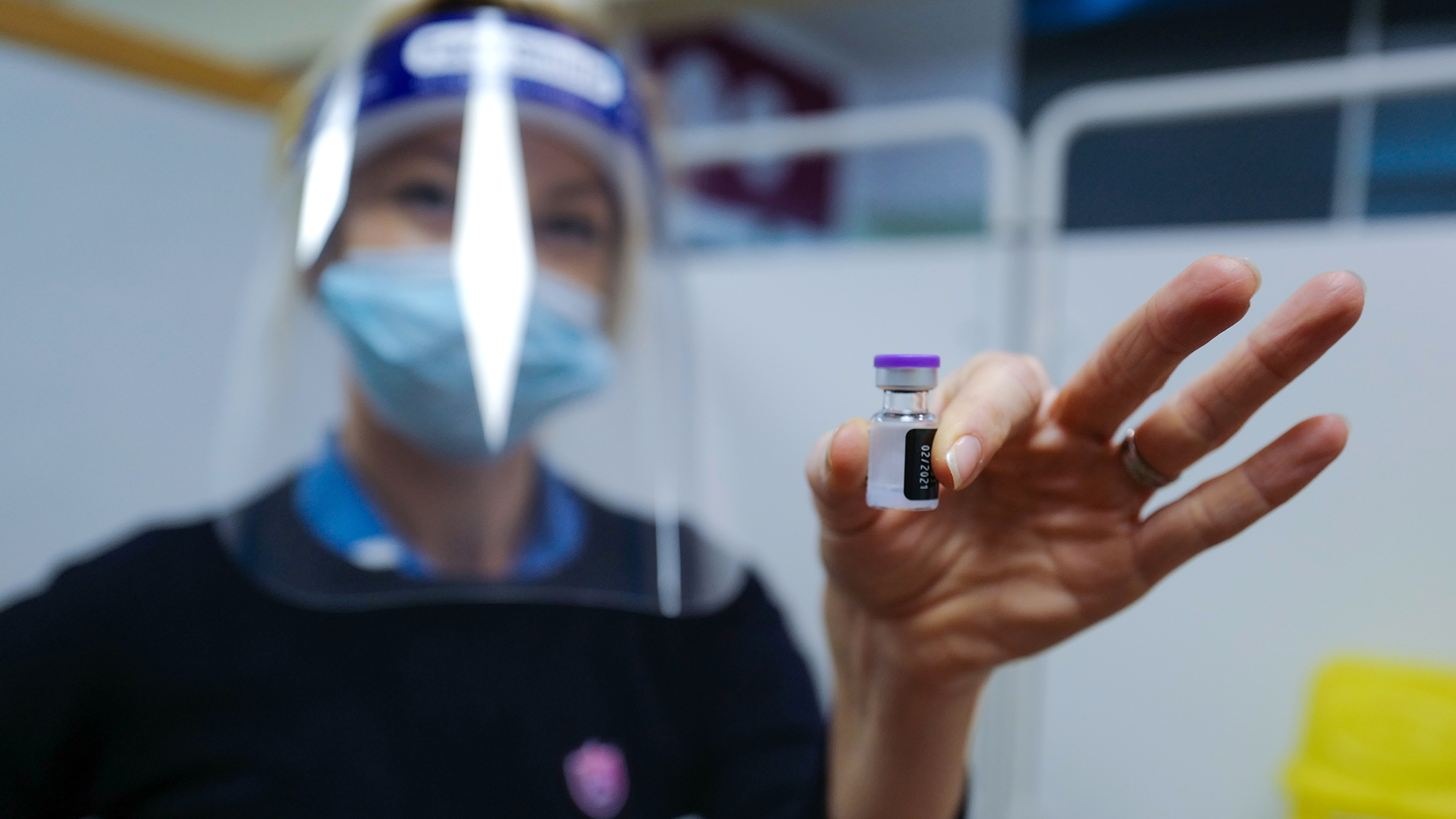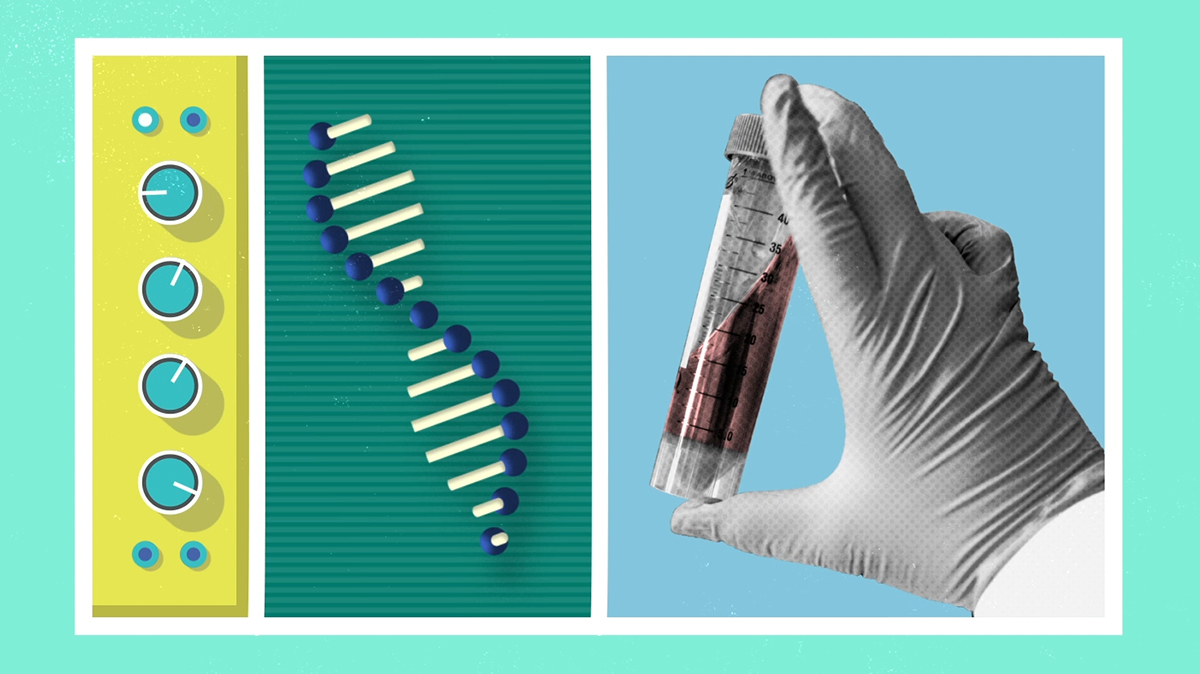What happens if we delay second doses of Covid-19 vaccines?
The UK government recently announced that it will leave a longer gap than expected between people's first and second doses of Covid-19 vaccine. How will that affect their efficacy? There are grounds to believe this is a reasonable decision, although there is little direct evidence so far.

A staff nurse at the Royal Cornwall Hospitals NHS Trust prepares to administer Covid-19 vaccinations.

The UK government is currently using the Oxford-AstraZeneca and Pfizer-BioNTech vaccines against Covid-19. After initially planning to administer vaccine doses 3 weeks apart, the UK changed its policy to have an interval of up to 12 weeks. This is at the top end of the recommended range for the Oxford-AstraZeneca vaccine (4 to 12 weeks) but is much longer than the recommended interval for the Pfizer-BioNTech vaccine (3 weeks). The position is that second doses are still essential, but that they can safely be given after a longer gap.
Other countries including the US are also considering changing their policies to extend the dosing schedule.
The decision was based on a recommendation from the Joint Committee on Vaccination and Immunisation (JCVI) – an independent expert group that advises the UK health departments. NHS England said the decision would “protect the greatest number of at-risk people overall in the shortest possible time”.
It is in response to the new Covid-19 variant, which spreads more quickly and threatens to overwhelm the NHS.
The idea is that giving initial protection to as many people as possible, as fast as possible, will have the greatest benefit – the first dose should offer some short-term protection and at least prevent serious illness and hospitalisation.
The UK’s Chief Medical Officers say that, with infection levels so high in the UK, it would be better in the short term to give “substantial initial protection” from severe disease to 1,000 people through a single dose than to let 500 people “gain marginally” from the extra protection of a second dose.
Ideally, we would run a set of clinical trials to compare different dosing schedules and then make policy based on plenty of solid data. But that would take many months, and the pandemic is raging. Infections, hospitalisations and deaths are currently very high in the UK, especially after the emergence of the new coronavirus variant, and the NHS is under severe pressure.
In these circumstances, a decision had to be made about the best likely way to deal with this public health emergency.
Vaccines don’t work immediately – the protection they give builds up over time. But, over a longer time, that protection may then fall again. So, for most vaccines, a second booster jab is given several weeks or months after the first. In general, a 12-week gap between doses would not be long enough for that initial protection to fade.
In fact, there are risks in having too short a gap between doses: it’s important to give the immune system time to fully react to the first dose so that it can then get maximum benefit from the second.
The clinical trials of the new coronavirus vaccines didn’t compare different dosing timescales. But, by looking at the details, we can get some indications.
The Oxford-AstraZeneca trial involved a range of gaps between doses, and the signs are that the participants who had a longer gap developed stronger immunity. But the numbers involved are small, and the trial wasn’t designed to test this comparison, so we need to be cautious with this data. It does suggest, though, that this vaccine follows the general pattern of giving better protection with a longer gap. Based on this, the UK decision, to aim at the high end of the recommended 4-12 week gap, is justified.
The picture is more uncertain for the Pfizer-BioNTech vaccine. Their trial gave second doses consistently at around 3 weeks after the first, so we can’t look at the results to compare. But what is clear is that participants started getting protection from about 10 days after the first dose, and this protection was maintained at least until the second dose, three weeks later, kicked in.
Another potential issue is that the Pfizer-BioNTech vaccine is the first to have been developed with new mRNA technology. In theory, because we’ve never had the chance to monitor this kind of vaccine in use before, it’s possible that the first dose might not maintain short-term immunity as well as vaccines made using longer-established methods (like the Oxford-AstraZeneca one).
One possible extra indication comes from the Moderna vaccine (approved but not yet in use in the UK), which was also developed using mRNA. Their trial gave the two doses 4 weeks apart – longer than the Pfizer-BioNTech 3 weeks – and also found immunity continuing to strengthen during this interval.
The evidence is limited. Delaying the second doses might weaken the effects of the first, it might make no difference – or, as happens with most other vaccines, it might strengthen those effects.
But, given the certainty that the UK’s daily death toll is high and the NHS is under terrible strain, it seems reasonable to extend the interval so that more people can get short-term protection from a first dose. The second doses will still be necessary, of course, and the effects on patients will need to be closely monitored in the coming months so that we can get a better understanding of dosing intervals. The vaccine roll-out should be accompanied by observational studies and, if possible, randomised controlled trials, so that the UK and other countries can get more solid data on what timings are optimal and how immunity changes over time.
The UK government says that people should get a second dose of the same vaccine as their first dose. However, if supplies of that vaccine are unavailable, or information on which the first dose was has been lost, they say that in some cases it may better to give a dose of whichever is available rather than no second dose at all. There is no evidence yet on whether switching vaccines between doses can affect the efficacy.
One other concern that people have raised is the evolution of the virus. If millions of people are walking around for 12 weeks with partial immunity from a first dose, could that give the virus more opportunity to mutate in a way that lets it evade the vaccines?
In theory, this is possible, although there’s no direct evidence that it’s likely. But it’s worth looking at the opposite risk too. If delaying the second dose can lead to stronger immunity, then this policy would reduce the number of partially immunised people over the coming year, and therefore reduce the scope for such a dangerous mutation in the virus.
Whatever happens with the vaccine roll-out, we all have to keep reducing the spread of the virus by wearing masks, washing hands and avoiding face-to-face contact wherever possible. This applies even after receiving the first dose, because immunity takes time to build up – and it’s not yet completely clear whether these vaccines can stop transmission of the virus, rather than just stopping the development of illness.
Finally, it is crucial to make sure vaccination is rolled out speedily across the globe, not just in the UK and other rich countries. The more people worldwide who remain exposed to the virus, the more opportunity it will have to mutate into a more harmful form. In a pandemic like this, the interests of any one country merge together into the interests of the whole human race.




Credit: Luis Tato / AFP via Getty Images

The UK government recently announced that it will leave a longer gap than expected between people’s first and second doses of Covid-19 vaccine. How will that affect their efficacy?